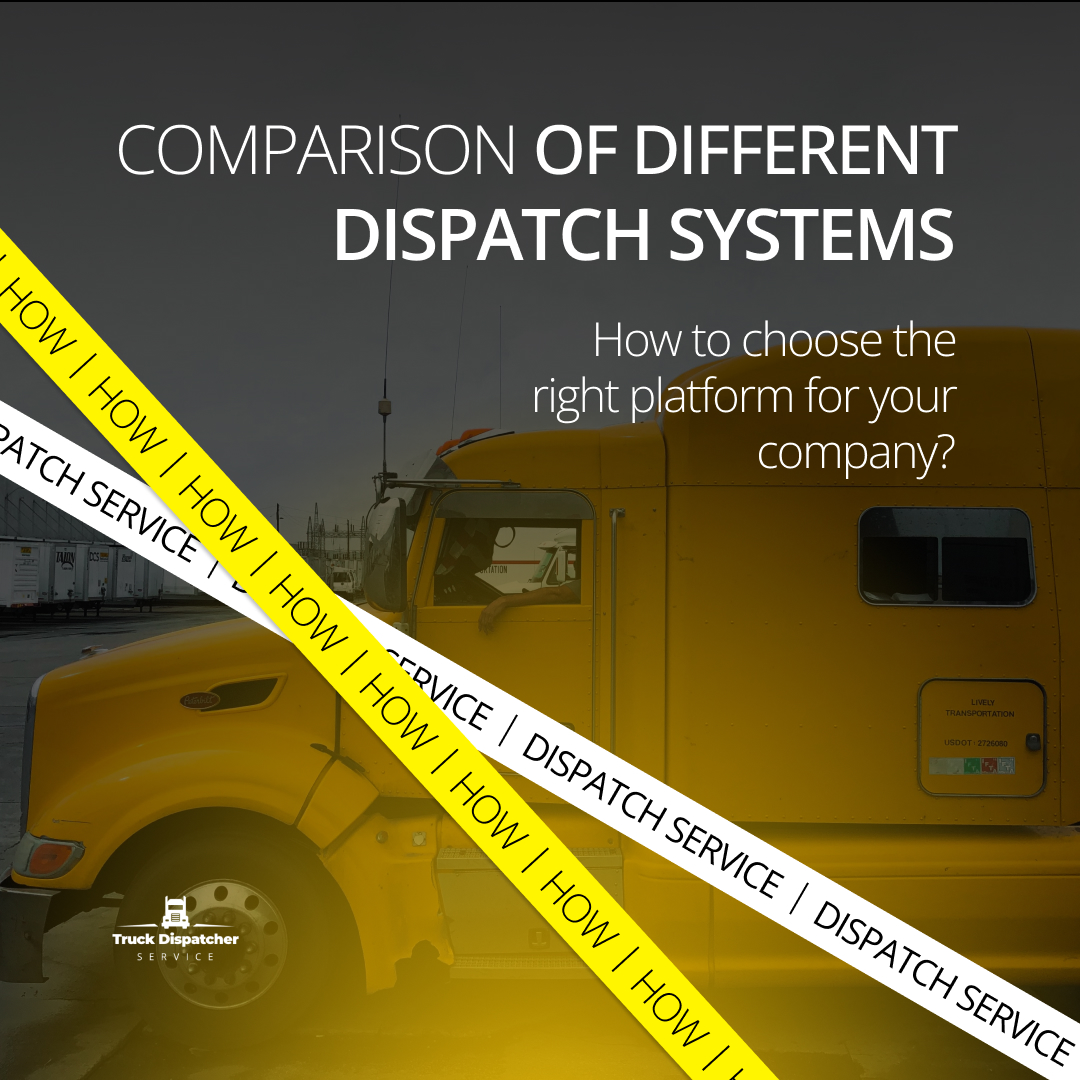Selecting the right dispatching system is crucial for any company, as it directly impacts efficiency, productivity, and customer satisfaction. There are various dispatching systems available, each with its own features and advantages. In this comparison, we will explore different dispatching systems to help you choose the most suitable platform for your company’s needs.
Traditional Dispatching Systems:
Traditional dispatching systems involve manual processes, such as phone calls or radio communication. While these methods have been used for years, they are becoming outdated due to their limitations in handling large volumes of requests efficiently. They lack real-time tracking and data analytics capabilities, making it challenging to optimize operations.
Web-Based Dispatching Systems:
Web-based dispatching systems have gained popularity for their accessibility and real-time tracking features. These systems operate through web browsers, allowing dispatchers and drivers to access information from anywhere with an internet connection. They offer better communication between dispatchers and drivers, leading to improved response times and customer satisfaction. However, some web-based systems might lack advanced features required for specific industries.
Mobile App-Based Dispatching Systems:
Mobile app-based dispatching systems provide flexibility and convenience. Dispatchers and drivers can use dedicated mobile applications installed on their smartphones or tablets. These apps offer real-time tracking, route optimization, and instant communication features. Mobile dispatching systems are ideal for companies with a mobile workforce, such as courier services and food delivery businesses. They enhance operational efficiency and enable better coordination between teams.
Integrated Dispatching Systems:
Integrated dispatching systems are comprehensive solutions that combine dispatching functionalities with other business operations. These systems seamlessly integrate with inventory management, CRM, and financial software, providing a unified platform for various tasks. Integrated dispatching systems offer automation, streamlined workflows, and in-depth analytics. They are suitable for large enterprises with complex operations, helping them manage multiple aspects of their business in one place.
Factors to Consider When Choosing a Dispatching System:
- Scalability: Ensure the system can accommodate your company’s growth in terms of users, vehicles, and workload.
- Customization: Look for systems that allow customization to meet your specific business requirements.
- Real-Time Tracking: Real-time tracking of vehicles and orders is crucial for efficient dispatching and customer satisfaction.
- Ease of Use: Choose a user-friendly interface that minimizes training time for your staff.
- Integration: If your company uses other software applications, opt for a dispatching system that seamlessly integrates with them.
- Cost: Consider your budget and choose a system that offers the best value for money based on your requirements.
- Customer Support: Reliable customer support is essential for troubleshooting issues and getting timely assistance.
In conclusion, the choice of a dispatching system depends on your company’s specific needs, size, and industry. Evaluate the options available in the market, considering the factors mentioned above, to select a platform that enhances your company’s efficiency, productivity, and overall customer experience.

 +1 773 649 1774
+1 773 649 1774



